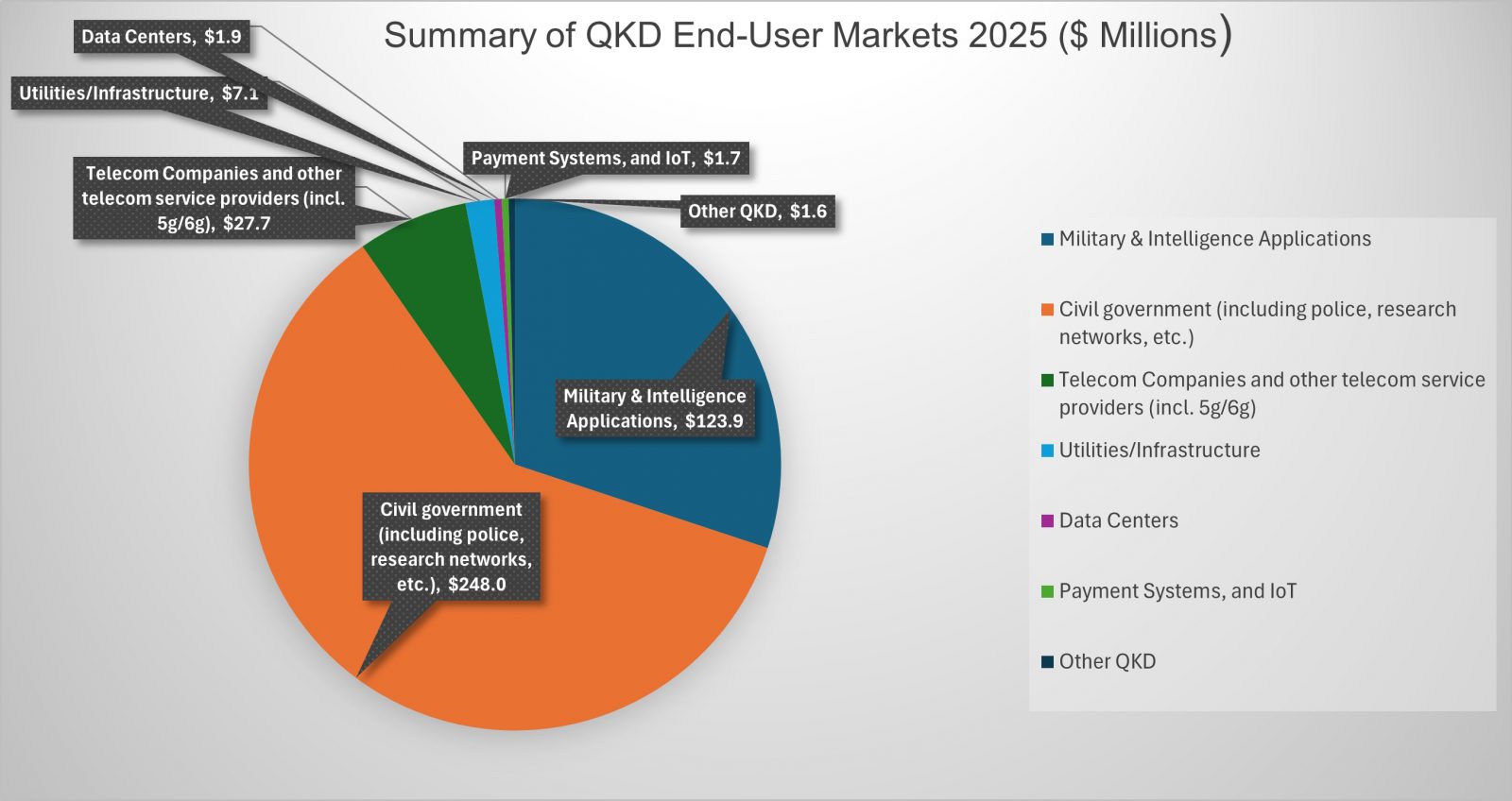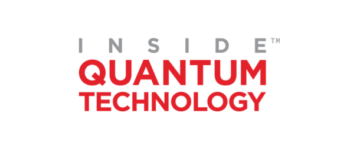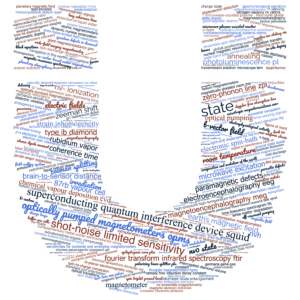
By IQT RESEARCH posted 26 Jun 2024
New York, NY: IQT Research, a quantum technology industry-analysis firm based here, has published its latest forecast for the quantum key distribution (QKD) market. The report, “QKD Market Opportunities 2024: The Quantum-Safe Path to the Quantum Internet” shows the QKD market growing from $269 million in 2024 to $2.3 billion in 2029 then rising to $9.1 Billion by 2033.
For a sample of this report, click on Request Excerpt.
For a quote, click on Request a Quote.
About the Report:
IQT Research has followed the QKD market since its earliest days and comments on QKD opportunities as an insider. This report contains our latest thinking on the future of QKD, providing coverage of both recent technological innovations and market evolution.
This report profiles strategies of 36 QKD suppliers and all the major QKD deployments worldwide. Companies profiled include Adtran/ADVA, Ciena, Cisco, HPE/Juniper Networks, Nokia, ArQit, evolutionQ, HEQA, ID Quantique, KEEQuant, KETS, MagiQ, Nu Quantum, Qnu Labs, Quantum Blockchains, Quantum Industries, QuantumCTek, Qubitekk QuintessenceLabs, SandboxAQ, Terra Quantum, Toshiba, Vericloud, AegiQ, CAS QuantumNet, Craft Prospect, KT, levelQuantum, QEYnet, Quantum Xchange, SpeQtral Quantum Technologies, ThinkQuantum, Quantum Future, Alter Technology, Aurea Technology, Fifteen Instrument, Keysight and Pixel Photonics.
Also included are ten-year forecasts with breakouts by country, end-user type, transmission type, etc. Markets forecasted include military and intelligence, civil government, banking and finance, critical infrastructure and the telephone industry. We also examine the growing role of QKD in large enterprises. Forecasts are supplied to report purchasers in an Excel sheet, so that they can use them to construct complex “what if” scenarios.
Lawrence Gasman, President of IQT Research, notes “QKD will grow in importance over the coming years and will become widely used for data transfer among interconnected data centers. The financial sector, in particular, not only needs high levels of data security for the bulk transport of funds but also has the resources to invest heavily in quantum-safe technology, including QKD.”
The report provides profiles of QKD networks and testbeds worldwide. Coverage includes North America, China, Korea, Japan, Singapore, India, the U.K., the EU, Russia and South Africa. Within the EU, the report provides an analysis of the QKD deployments that comprise the OpenQKD project and its successor EuroQCI.
It also examines how QKD is rapidly improving technologically. Improvement is coming from the use of both specialist fiber and from innovation on the QKD theme itself. As far as the former is concerned, Chinese scientists have claimed QKD over a distance of 1,002 km using special ultra-low-loss fiber. Meanwhile, variations on the QKD theme, enable higher speeds and greater distances. QKD variations, such as CV-QKD, can be implemented with entanglement-based protocols, pointing the way to the future Quantum Internet.
From the Report:
- Common encryption schemes (notably, public key encryption) will soon be broken by quantum computers. Hybridizing QKD and PQC will provide two “points of failure” in mission critical applications. The trend towards powerful quantum computers is accelerating, fueled by new quantum computer technologies and small steps towards error correction/fault tolerance.
- QKD chips will enable a “new QKD” for smaller organizations and new verticals. If this happens, then QKD chip-level electronics may be manufactured in volume using techniques from the semiconductor industry. Over time QKD chips will exploit emerging integration technologies including silicon photonics, where several “proof-of-principle” demonstrations of Si-based QKD devices have been reported.
- IQT Research anticipates that QKD-as-a service (QaaS) will be a significant money earner for service providers of all kinds including traditional telcos. However, high-end business services like QaaS have had varied success in the past. The advantages of QaaS are that the end user does not have to buy expensive equipment, hire specialized talent or install a dedicated optical link. Several companies that already offer large organizations QaaS – in some cases these services may be part of more complex offerings, especially more broad security offerings that bring PQC into the mix.
About IQT Research:
IQT Research is a division of 3DR Holdings, and the first industry analyst firm dedicated to meeting the strategic information and analysis needs of the emerging quantum technology sector. In addition to publishing reports on critical business opportunities in the quantum technology sector, Inside Quantum Technology produces a daily news website on business-related happenings in the quantum technology field.
3DR Holdings also organizes Inside Quantum Technology World Tour of Conferences. The complete information for conferences can be found at iqtevent.com.
For inquiries, please contact:
Missy Wade
missy@insidequantumtechnology.com
Telephone: 888-384-7144
- SEO Powered Content & PR Distribution. Get Amplified Today.
- PlatoData.Network Vertical Generative Ai. Empower Yourself. Access Here.
- PlatoAiStream. Web3 Intelligence. Knowledge Amplified. Access Here.
- PlatoESG. Carbon, CleanTech, Energy, Environment, Solar, Waste Management. Access Here.
- PlatoHealth. Biotech and Clinical Trials Intelligence. Access Here.
- Source: https://www.insidequantumtechnology.com/news-archive/qkd-report-from-iqt-research-pegs-revenues-from-quantum-key-distribution-gear-at-2-3-billion-in-2031/
- :has
- :is
- :not
- :where
- 1
- 12
- 16
- 19
- 2024
- 2031
- 24
- 26%
- 29
- 36
- 7
- 8
- 9
- a
- accelerating
- addition
- advantages
- africa
- All
- already
- also
- alt
- alter
- america
- among
- an
- analysis
- analyst
- and
- anticipates
- applications
- ARE
- AS
- At
- Banking
- based
- BE
- become
- been
- Billion
- blockchains
- both
- breakouts
- bring
- broad
- Broken
- business
- but
- button
- buy
- by
- CAN
- cases
- categories
- Centers
- China
- chinese
- Chips
- ciena
- Cisco
- civil
- claimed
- click
- coming
- comments
- Companies
- complete
- complex
- computer
- computers
- concerned
- conferences
- construct
- contact
- contains
- country
- coverage
- craft
- critical
- Critical Infrastructure
- daily
- Daily news
- data
- data centers
- data security
- Days
- dedicated
- deployments
- Devices
- distance
- distribution
- Division
- does
- earliest
- Electronics
- emerging
- enable
- encryption
- end
- enterprises
- equipment
- error
- especially
- etc
- EU
- evolution
- examine
- Examines
- Excel
- expensive
- Exploit
- false
- far
- field
- finance
- financial
- Financial sector
- Firm
- First
- followed
- For
- Forecast
- forecasts
- Former
- found
- from
- fueled
- funds
- future
- Gear
- Government
- greater
- Grow
- Growing
- had
- happens
- Have
- heavily
- here
- High
- High-End
- higher
- hire
- Holdings
- How
- However
- HTTPS
- ID
- if
- image
- implemented
- importance
- improvement
- improving
- in
- include
- included
- includes
- Including
- india
- industries
- industry
- information
- Infrastructure
- Innovation
- innovations
- Inquiries
- inside
- Inside Quantum Technology
- Insider
- install
- integration
- Intelligence
- interconnected
- Internet
- into
- Invest
- ITS
- itself
- Japan
- jpg
- Key
- kinds
- korea
- Labs
- large
- Large enterprises
- latest
- levels
- like
- LINK
- major
- manufactured
- Market
- market opportunities
- Markets
- max-width
- May..
- Meanwhile
- meeting
- Military
- million
- Mission
- mix
- money
- more
- needs
- networks
- New
- new quantum computer
- news
- North
- north america
- notably
- Notes
- NY
- of
- offer
- Offerings
- on
- only
- opportunities
- or
- organizations
- organizes
- our
- over
- part
- particular
- past
- path
- Pixel
- plato
- Plato Data Intelligence
- PlatoData
- please
- pointing
- posted
- powerful
- PQC
- president
- produces
- Profiles
- project
- protocols
- provide
- providers
- provides
- providing
- public
- Public Key
- published
- Publishing
- Quantum
- Quantum Computer
- quantum computers
- Quantum Internet
- quantum technology
- quote
- rapidly
- recent
- report
- Reported
- Reports
- research
- Resources
- revenues
- rising
- Role
- ROW
- Russia
- sample
- scenarios
- schemes
- scientists
- sector
- security
- semiconductor
- service
- service providers
- Services
- several
- sheet
- Shows
- significant
- Silicon
- since
- Singapore
- small
- smaller
- So
- some
- soon
- South
- South Africa
- special
- specialist
- specialized
- speeds
- Steps
- Strategic
- strategies
- success
- such
- supplied
- suppliers
- Talent
- techniques
- technological
- Technologies
- Technology
- Technology sector
- Terra
- that
- The
- The Future
- Them
- theme
- then
- These
- they
- Thinking
- this
- time
- to
- tolerance
- Tour
- towards
- traditional
- transfer
- transmission
- transport
- Trend
- true
- two
- type
- U.K.
- use
- used
- User
- using
- variations
- varied
- verticals
- volume
- Way..
- we
- Website
- widely
- will
- with
- within
- world
- worldwide
- years
- york
- zephyrnet













